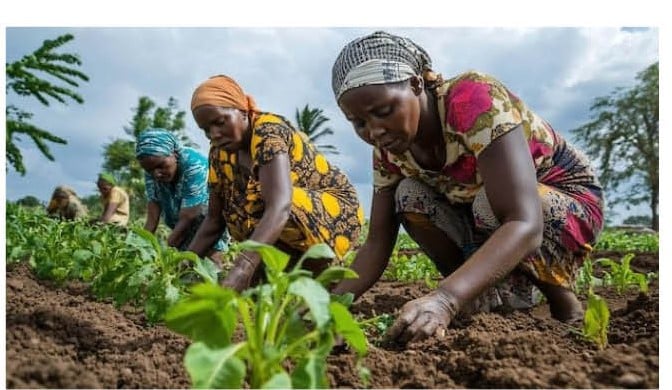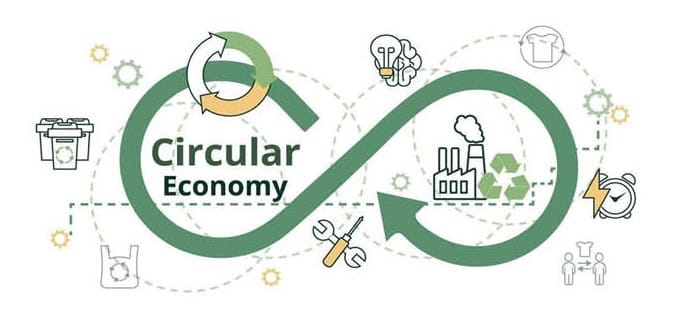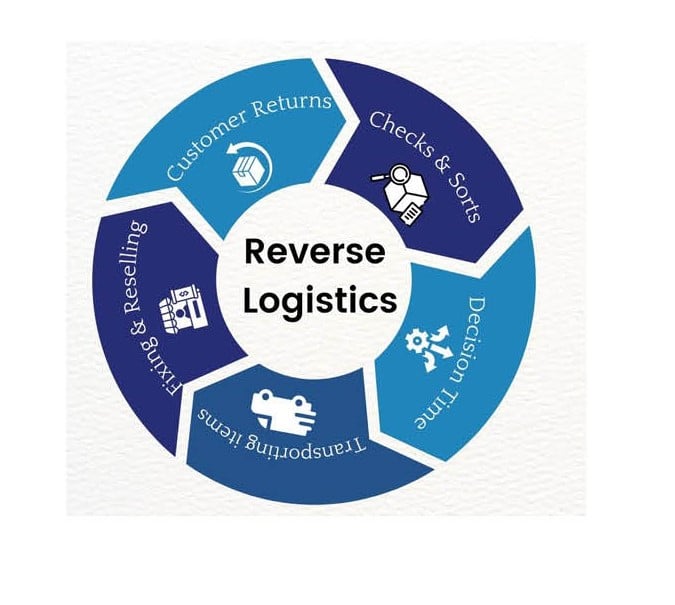Highlighting impactful, policy-relevant research from GIMPA researchers

Prince Derrick Dodoo & David Eshun Yawson
Towards an understanding of multi-generational Higher education cohorts in gamified entrepreneurship education
This paper interrogates the educational experiences of
multi-generational higher education students in a core
gamified entrepreneurship course in an undergraduate
business school programme. The research analyzed 392
course feedback responses from three generations (X,
Y, and Z) of a multi-generational cohort. The authors
developed and validated a behaviour-results model for
gamified entrepreneurship courses leading to student
entrepreneurial intention and entrepreneurial orientation,
and disaggregated student engagement into its multiple
dimensions of cognitive, behavioural and emotional. The
study found differences in the component variables based
on student Generations X, Y, and Z. Also, student cognitive
and behavioural engagement led to entrepreneurial
intention which also influenced student entrepreneurial
orientation. There were marked differences in student grit,
cognitive engagement, and emotional engagement between
Generations X and Z. The study found that there is a need
to contextualize student engagement facilitators such as
results demonstrability of the business simulation platform,
student grit and user characteristics as they have selective
effects on student cognition, behavioural and emotional
engagements in a multi-generational student cohort of
Generation X, Y and Z.

Fanny Adams Quagrainie
Entrepreneurial Competencies of Successful Indigenous Women Entrepreneurs and their Impact on Poverty Alleviation
This book chapter aims to assess Ghanaian Indigenous
Women Entrepreneurs’ entrepreneurial competencies
needed for their success and the impact of their success on
poverty alleviation. The study uses a qualitative approach to
the collection and analysis of data. An interview guide was
used to collect data from 27 indigenous women entrepreneurs
and 80 poor persons who have benefited from the support
provided by indigenous women entrepreneurs. Data were
analysed using thematic analysis. The findings revealed that
indigenous women entrepreneurs measured success using
both objective and subjective indicators. Indigenous women
entrepreneurs’ success depended on five entrepreneurial
competencies—strategic, commitment, relationship,
personal and resilience competencies. With their successful
operations, indigenous women entrepreneurs can promote
poverty alleviation by providing financial, economic, and
social resources. The chapter provides policy relevant
recommendations for policymakers, indigenous women
entrepreneurs and areas for future studies.

Vivian Osei, Disraeli Asante-Darko & Amoako Kwarteng
Competitive strategy and circular economy practice implementation toward corporate sustainability performance
This study, published in Business Strategy and the
Environment, examines the mediating role of Circular
Economy (CE) practices on the relationship between
competitive strategy and sustainability performance.
Drawing on the natural resource-based view (NRBV)
theory and institutional logics (IL) theory, this study
explores a framework that introduces competitive strategy
as an antecedent variable in advancing CE practices and
sustainability performance among firms in a developing
economy. Based on data obtained through a survey of
380 firms in Ghana, the results revealed that competitive
strategy has a positive and statistically significant relationship
with corporate sustainability performance. Additionally,
CE practices mediate the positive association between
competitive strategy and corporate sustainability. This
research extends the frontiers of the literature by combining
the IL and NRBV theories to explain how competitive
strategy influences sustainability performance via CE
practices in Ghana.

Atia Alpha Alfa, Raphael Aryee, Franklyn Manu & Israel Kpekpena
Scientometric and content analysis-based review of employees in micro-level corporate social responsibility research
This study presents a comprehensive scientometric analysis
evaluating current research on micro-level Corporate Social
Responsibility (CSR). Utilizing a science mapping method,
4286 Scopus bibliographic records were quantitatively
and systematically examined. Published in Corporate
Social Responsibility and Environmental Management,
the findings reveal the most prolific authors, journals,
institutions, countries, article citations, and co-occurrence
network of keywords via cluster analysis. The qualitative
analysis uncovered five distinct micro-level themes
concerning CSR, including concepts, drivers, evaluations,
reactions, and research design. Trends and patterns of the
micro-level CSR field are visualized and comprehended, and
the primary research networks, journals, institutions, and
countries, along with their interconnections, are identified.
Furthermore, it introduces a comprehensive framework
that classifies the different categories of micro-level CSR
research. The research highlights the inadequacies in
current research and offers insights for future studies.

Anthony Yaw Tano , Franklyn A Manu, Kofi Osei-Frimpong & William Phanuel Kofi Darbi
Leader-member exchange and organizational citizenship behaviour: The moderator effects of subordinates’ horizontal collectivism orientation and team-member exchange
This paper, published in the International Journal of
Cross-Cultural Management, attempts to explain why
the quality of leader-member exchange (LMX) is weakly
related to organizational citizenship behaviour (OCB) in
non-Western cultures. The study explores subordinates’
cultural value orientation and team member exchange
(TMX) as boundary conditions of the effects of LMX on
citizenship behaviour directed at individual organizational
members (OCBI) and citizenship behaviour directed at the
organization as a whole (OCBO). The research hypotheses
were tested using a sample of 392 supervisor-subordinate
dyads from organizations across different sectors in
Ghana. The results support our theorizing that horizontal
collectivism and TMX strengthen the relationship between
LMX and OCBI such that the relationship is stronger for
horizontal collectivists and under a high TMX context.
However, the results did not support the hypothesized
moderator effects of horizontal collectivism and TMX on
the LMX-OCBO relationship

R. Souza Piao, T. B. Vincenzi, D. A. Vazquez-Brust, N. Yakovleva, S. Bonsu, M. & M. Carvalho
Barriers toward circular economy transition: Exploring different stakeholders’ perspectives
This paper focuses on the Circular Economy (CE) and
attempts to understand the many challenges regarding its
implementation. This paper investigates the barriers to
adopting CE practices in the Brazilian waste management
system. In the empirical research first stage, a workshop
was conducted with researchers and managers. In the
second stage, 1 year later, interviews were conducted in 22
organizations across different categories of the waste system.
The outcomes indicate that barriers are more related to the
implementation of CE practices, and the lack of legislation
enforcement and coordination of distinct levels of
government. New dimensions for explaining barriers to CE
in developing countries also emerged from field research as
the low market value of some residues and the informality
in the system.

Raphael Aryee, Ebenezer Adaku, Sarah Quayson & Evelyn Ogboo Apronti Tetteh
The returned product-process matrix: A decisionmaking framework for reverse logistics operations strategic choice
A complete framework for reverse logistics (RL) decisionmaking has the potential to offer insights for the choice of RL
strategies, particularly in this era where closed-loop supply
chain is gaining traction in research and practice. This paper
published in Business Strategy and Development, seeks
to identify RL strategies based on a systematic literature
review and industry consultation. The authors draw from
the systematic literature review approach to analyse articles
collected mostly from the Scopus database. The outcome
is a framework, referred to as the “Returned ProductProcess Matrix” (RPPM), that offers a holistic view of RL
strategies, which can serve as a decision-support system for
practitioners in choosing the appropriate RL strategy. To
the best of the researchers’ knowledge, the RPPM is the
first attempt at comprehensively structuring and clarifying
the RL decision-making in green logistics operations.

Samuel Adams & Hervé Kaffo Fotio
Economic integration and environmental quality: accounting for the roles of financial development, industrialization, urbanization, and renewable energye
This paper investigates the effect of economic integration
on the environment in a sample of 36 African countries.
The researchers employ the fixed-effect D&K estimator
and the mediation analysis to examine direct and
indirect effects, respectively. Published in the Journal of
Environmental Planning and Management, the findings
reveal that economic integration improves the environment
only when its negative indirect effects are neutralized.
Economic integration has a direct negative effect on carbon
dioxide (CO2) emissions and an indirect positive effect
through urbanization, renewable energy consumption,
financial development, and industrialization. The net effect
is positive, and therefore, economic integration undermines
the environmental quality in Africa. This result is robust
when economic integration is split into trade and financial
integration. The main implication of this study is that
integration policies in Africa should also target greening
the financial sector, sustainable urban planning, energy
efficiency in the industrial sector, and renewable energy use.

Stephen T. Odonkor & Theodora N. Yeboah
Challenges of rural women living with obstetric fistula: A phenomenological study
This paper seeks to explore the challenges and post-surgery
integration needs among rural women living with obstetric
fistula. A critical exploratory research methodology based
on phenomenology was used to conduct in-depth oneon-one interviews. A systematic analysis of data was then
done to identify and categorize emerging themes. Published
in Women and Birth, the results showed that those who
lived with obstetric fistulae experienced psychosocial,
physical, and economic challenges. Dominant among the
psychological challenges identified were disruptions in social
relations, divorce and loss of a baby through neonatal death.
Physical challenges include rashes and sores, foot drop,
and incontinence of urine. Economically, these women lost
their source of livelihood and were heavily dependent on
other family members. Support from family was also found
to be key to the post-surgery integration of the women.

John Taden, Daniel K. Banini & Agomor Kingsley
Determinants of swing voting in Africa: evidence from Ghana’s elections
This study, published in the Journal of Elections, Public
Opinion and Parties, probes the factors that pry swing
voters away from core supporters in African elections.
Using data from a nationally representative sample of over
3000 voters across Ghana, the researchers find evidence
that voters exempted from positive clientelist inducements
(gifts) were more likely to cast swing votes. They show that
voters exposed to negative clientelism were more likely
to cast swing votes. Nonetheless, voters wary of violence
but who have received gifts in exchange for their votes
were less likely to swing their vote, indicating that negative
clientelism is only effective when accompanied by positive
inducements. Finally, the study shows that voters who
prioritize parties’ performance records were more likely to
switch their votes from one party to another. Our results
imply that the rising political power shifts on the continent
are driven by an increasing share of voters unencumbered
by clientelist inducements and a rising determination to
prioritize national interests over parochial benefits.

Emmanuel Antwi Boasiako, Shijie Zhou, Yongjian Liao, Eric Kuada & Ebenezer Kwaku Danso
Enhanced privacy-preserving distributed deep learning with application to fog-based IoT
This paper presents enhanced privacy-preserving distributed
deep learning (PPDDL) by proposing two solutions. The
basic scheme combines LWE-based additive homomorphic
encryption and partial sharing, making it communication
cost-friendly. The advanced, however, uses a lattice-based
fully dynamic multi-key fully homomorphic encryption
(FHE) scheme and partial sharing with the additional
advantages of being multi-key compliant, able to extend to
new participants, and well-suited for an unbounded number
of participants. Furthermore, the researchers put their work
in the context of Fog-Based IoT. Extensive experimental
evaluations for the basic solution, which also best suits
the Fog-Based IoT, show that the PPDDL accuracy is
maintained, recording an accuracy of about 97% for the
MNIST dataset. For a much deeper architecture, accuracy
could reach about 99%. To assess the generalizability of
the accuracy trend observed in the PPDDL, the proposed
solution was also evaluated using the CIFAR-10 dataset,
with interesting results recorded in this study.

Daniel Chachu, Michael Danquah, & Rachel M Gisselquist
Towards a measure of local government performance in Ghana: Conceptual framework, data, and results
Inspired by Putnam et al. (1994), this paper proposes
a conceptual framework to measure local government
performance, applying it to Ghana, a stable democracy
and a leader in decentralization reforms in SSA. Using
new data from administrative reports complemented by
primary and secondary sources, we construct performance
measures for 2016 and 2020. In a data-constrained context,
the researchers find that their ‘best possible measure’ is
good enough to capture variations in local government
performance, despite a restricted list of indicators. The
findings reveal improving administrative reporting quality
but generally low subnational institutional performance,
with older and larger urban districts outperforming newer,
rural ones. Emerging evidence raises questions about the
traditional notion of a rigid north–south divide in Ghana’s
socio-economic development. Additionally, betterperforming local governments tend to be associated with
lower poverty outcomes. This study offers a foundation for
theory-driven evaluation of local governance with important
implications for shaping decentralization reforms.
Learn more about the latest research at GIMPA
Please contact us at: Follow us on:
srgs@gimpa.edu.gh


